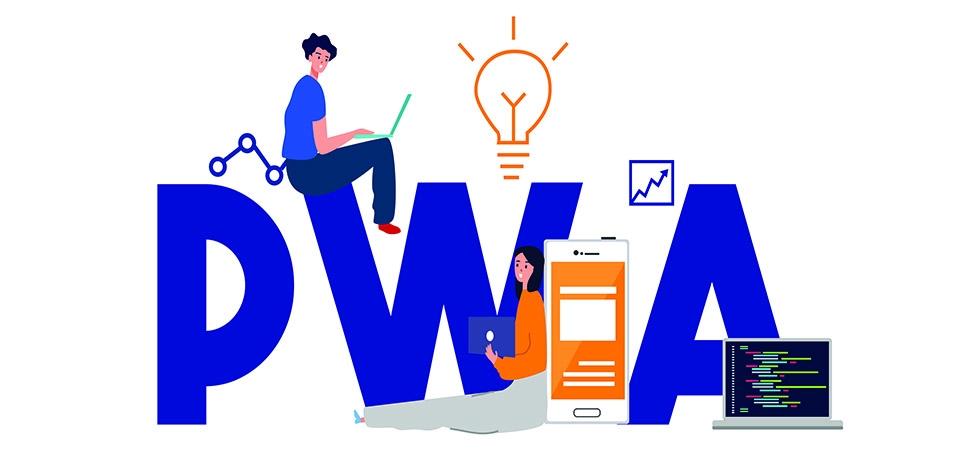What brands do the most often introduce PWA?

Progressive Web App is most often discussed in the context of implementing and presenting differences compared to a regular website. No wonder, because PWA offers many benefits not only to the user, but also to the implementation company. Many experts call this solution revolutionary. Why?
What is PWA?
Progressive Web App are websites that work and look like mobile applications. However, they are intended for mobile browsers. PWA transfers the advantages of applications to them, thereby giving the feeling of using a desktop computer on your phone or tablet. What are their characteristics?
First of all, speed of action. After all, it is associated with the use of the application. An almost immediate response follows each click. The website takes longer to load. This discourages potential customers of your company from using your website. Because PWA loads quickly, it has a positive impact on SEO. Thanks to this your site will be higher in the search results.
In addition, PWA offers the appearance of the application while maintaining the efficiency of the website. This means simplicity and graphic neatness, but also the ability to add complex mechanisms such as application forms or financial transactions. PWA uses location access and push notifications, but does not require long loading or installing applications in the phone’s memory.
Although PWA works without downloading, it uses many features of the application to evoke a positive mobile experience for the user. For example, it offers offline operation. This is done via JavaScript. Downloading the application creates a sense of loyalty towards the company because the user always has it at hand. And PWA offers this advantage without downloading, but straight from the browser.
Who is PWA for?
Progressive Web App is focused on the simplicity and speed of operation in a mobile browser, so the main target group will be smartphone and tablet users. This means that everything a user does on the internet can have the potential to be successful in introducing PWA. In addition, users can use mobile devices in all network activities, completely replacing the need for a desktop computer.
Media and information portals
The speed of browsing and loading news articles is probably PWA’s greatest asset, right after the reliability of the information and its timeliness. The morning press usually consists of quickly reviewing as many messages as possible of us. For information portals, working offline and displaying notifications in specific categories is already standard. However, cluttering your phone’s memory with several different applications is for some people excessive dedication. There is no better solution than Progressive Web App in this situation.
The PWA integration boasts, for example, Twitter, which looks the same in both the browser version and the mobile application. This reduces the user’s reluctance to move between channels to a minimum. Forbes and Onet are other portals that thanks to the integration of PWA reduced loading time, which certainly had an impact on popularity among recipients.
Mobile banking
Unfortunately, attachment to native applications is still dominating here, at least because of logging in with a fingerprint. The second obstacle is the increasingly popular use of NFC technology to authorize payments by phone, which PWA does not support.
However, banks often offer their information portals and product pages on the Progressive Web App. This is due to the speed of action so desirable in the industry in which the most efficient and modern system will succeed. As users are increasingly moving to mobile banking, the natural step is to respond to this trend. The visual coherence, menu layout and other elements of the website between the account application and the website visited for information purposes is also a big step towards improving the brand image.
E-commerce industry
Online shopping platforms are the greatest area for PWA to show off. Increasing the conversion rate is a specialization of Progressive Web App. It is influenced by the mentioned speed of the website – leaving no time for doubt. In limiting the pre-bounce rate, i.e. the number of users resigning from entering the site while it is loading, PWA definitely helps. In addition, the site looks like an application, which attaches the user to the store. Many customers view in-app products, but they move to the desktop version for the time of shopping. Here it immediately deals with the browser. Thanks to offline functioning, purchases will not be interrupted due to the lack of coverage. Location services, on the other hand, will help you match the right product or choose a pickup point.
For an online store, switching to PWA can be a difficult decision. Especially when it already has its own application. However, creating a website in the Progressive Web App gives the opportunity to sell in many channels in real time (even in terms of updating the contents of the basket) and the obligation to service only one system. You no longer need to take care of your presence in app stores or updates on multiple platforms. This makes it easier for both buyer and seller.
Is PWA right for you?
Certainly, the introduction of the Progressive Web App should be rethought and planned, taking into account the business model and potential directions of the company’s development. However, when considering the benefits of PWA, it’s hard to disagree that it’s almost always a step forward. The tendency of users towards moving from stationary to mobile devices is strong in every industry.
Therefore, there is only the fear of losing potential users due to the lack of presence in app stores. However, Google Play Store has launched the option of adding Progressive Web App. Apple, on the other hand, solves this issue with the help of wrappers, i.e. small applications that download functions from PWA websites. There is a solution for every problem. The more large players PWA introduces on the market, the greater the technological support will be. And this group is constantly growing. Instagram, Uber or AliExpress are just a few examples. If you think about the future of your company in the direction of mobile devices, then the integration of Progressive Web App is a good solution.








